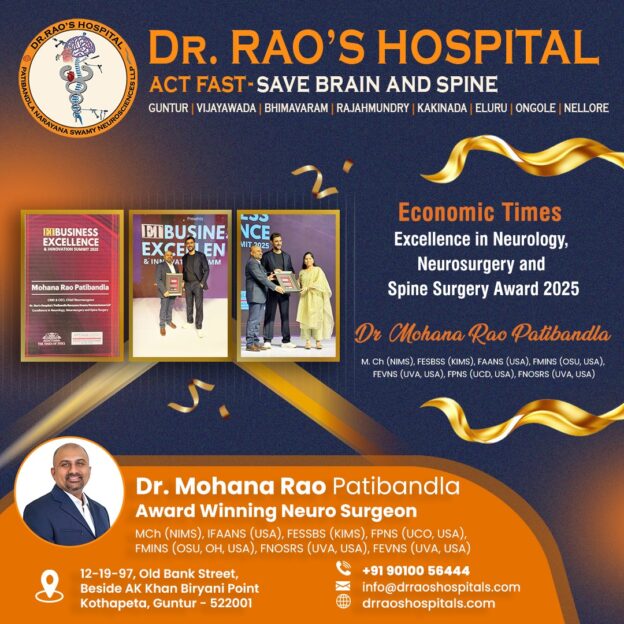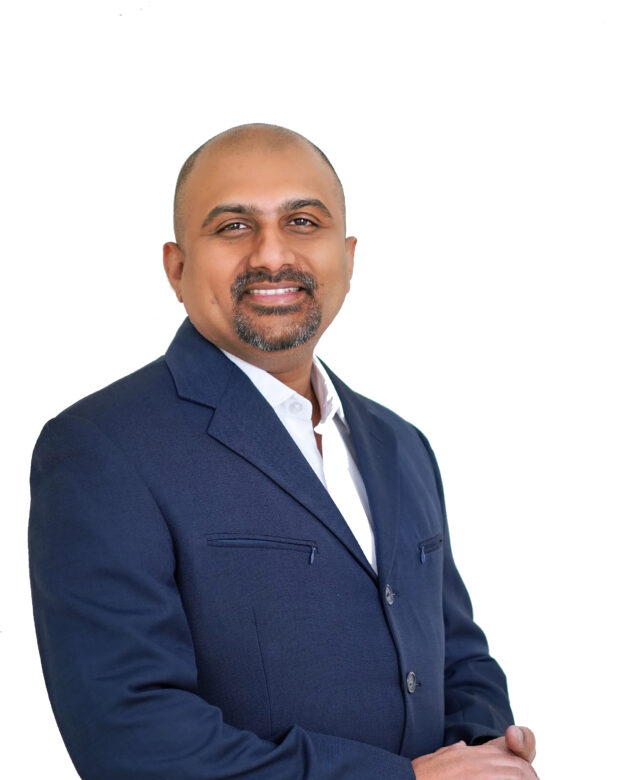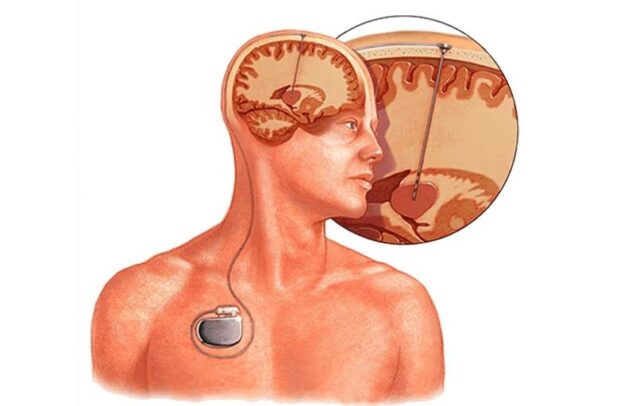Functional Neurosurgery – Modern Techniques Restoring Brain Function
When you hear the term functional neurosurgery, it might sound highly technical or intimidating. Yet, at its heart, it’s about restoring the ability to move, feel, and live life freely again. This branch of brain and nerve surgery focuses on treating conditions that affect how the brain and nerves function, helping patients regain control over their bodies and emotions through precise and life-changing medical procedures.
At Dr. Rao’s Hospital, specialists in functional neurosurgery use cutting-edge technologies and modern neurosurgery techniques to bring hope and healing to those living with chronic neurological disorders.
Understanding Functional Neurosurgery: The Science of Precision Healing
Functional neurosurgery is not just another form of advanced brain surgery it’s a specialized field that targets specific areas of the nervous system responsible for symptoms like tremors, seizures, pain, or abnormal movements. The goal is to restore lost function rather than remove a tumor or lesion.
Unlike traditional surgery that focuses on structural repair, functional neurosurgery treatment fine-tunes the brain’s activity using innovative tools like deep brain stimulation (DBS), spinal cord stimulation, or microsurgical procedures.
At Dr. Rao’s Hospital, experts apply these techniques with exceptional precision, customizing each procedure to the patient’s unique neurological condition.
The Role of Modern Neurosurgery Innovations
Modern medicine has transformed the landscape of neurological disorder surgery. From minimally invasive procedures to image-guided operations, modern neurosurgery innovations have made surgeries safer, faster, and more effective than ever.
Techniques like intraoperative MRI, robotic assistance, and neuronavigation allow surgeons to perform delicate operations with accuracy measured in millimeters. These advancements have dramatically reduced recovery time and improved long-term outcomes.
Conditions Treated Through Functional Neurosurgery
This neurosurgery has brought remarkable improvements in managing complex neurological disorders that were once considered untreatable.
Some of the most common conditions treated through functional neurosurgery treatment include:
- Parkinson’s disease
- Epilepsy
- Chronic pain disorders
- Essential tremor
- Dystonia and movement disorders
- Obsessive-compulsive disorder (OCD) and psychiatric conditions
At Dr. Rao’s Hospital, every case is evaluated by a multidisciplinary team of neurosurgeons, neurologists, and rehabilitation specialists to ensure holistic and personalized care.
Techniques Used in Functional Neurosurgery
Different neurosurgery techniques are used depending on the disorder and its symptoms. Some widely adopted techniques include:
1. Deep Brain Stimulation (DBS)
DBS involves implanting electrodes in specific areas of the brain to regulate abnormal signals. It’s especially beneficial for Parkinson’s and tremor patients.
Dr. Rao’s Hospital performs advanced DBS using image-guided systems, ensuring exceptional accuracy and long-term symptom control.
2. Spinal Cord Stimulation
This technique helps manage chronic pain by sending mild electrical impulses to the spinal cord, blocking pain signals before they reach the brain.
3. Microsurgical Procedures
Used in conditions like trigeminal neuralgia or epilepsy, microsurgical methods minimize tissue damage and enhance precision.
These modern neurosurgery innovations have significantly enhanced the quality of life for patients who previously relied only on medications.
Functional Neurosurgery Across Andhra Pradesh & Maharashtra
Accessibility is key to recovery. That’s why Dr. Rao’s Hospital has expanded its presence across multiple cities to make expert care closer to home. Patients seeking specialized care can access:
- Functional neurosurgery in Nagpur
- Functional neurosurgery in Narasaraopet
- Functional neurosurgery in Nellore
- Functional neurosurgery in Ongole
- Functional neurosurgery in Rajahmundry
- Functional neurosurgery in Vijayawada
- Functional neurosurgery in Visakhapatnam
These centers combine state-of-the-art infrastructure with compassionate care, ensuring every patient receives individualized attention.
What Makes Dr. Rao’s Hospital a Trusted Name in Functional Neurosurgery
At Dr. Rao’s Hospital, every functional neurosurgery procedure is guided by years of expertise and a deep understanding of the human nervous system. The hospital’s team believes in blending modern neurosurgery innovations with personalized treatment plans.
Here’s what sets the hospital apar
- Experienced specialists in brain and nerve surgery
- Cutting-edge technology for precise diagnosis and treatment
- Patient-centered approach with complete transparency
- Comprehensive rehabilitation and post-operative support
Whether it’s managing Parkinson’s or epilepsy, Dr. Rao’s Hospital ensures every patient gets the best possible care from diagnosis to recovery.
A Patient’s Journey: From Fear to Freedom
Many patients arrive at Dr. Rao’s Hospital with years of discomfort, tremors, or seizures that affect their quality of life. Through advanced functional neurosurgery treatment, they find relief and restoration.
One such patient, a 58-year-old with severe Parkinson’s tremors, underwent advanced brain surgery using DBS. Within months, his tremors reduced, and he regained the ability to perform daily activities independently.
Stories like his remind us why neurosurgery isn’t just a medical advancement it’s a life-changing journey back to normalcy.
Conclusion
Functional neurosurgery represents a new era in medicine one where precision, compassion, and innovation come together. By embracing neurosurgery techniques rooted in modern neurosurgery innovations, doctors can help patients regain what they thought was lost forever.
At Dr. Rao’s Hospital, every procedure is not just a surgery it’s a step toward freedom from neurological limitations. With expert care available across Nagpur, Vijayawada, Visakhapatnam, and other cities, Dr. Rao’s Hospital continues to lead the future of functional neurosurgery treatment in India.
For anyone seeking the best in brain and nerve surgery, Dr. Rao’s Hospital remains a name synonymous with trust, technology, and transformation.
Frequently Asked Questions
1. What is Functional Neurosurgery?
Functional neurosurgery is a specialized field that treats neurological conditions by modifying nerve and brain activity to restore normal function.
2. Which Conditions Can Be Treated with Functional Neurosurgery?
It is used for disorders like Parkinson’s disease, epilepsy, chronic pain, tremors, and some psychiatric conditions.
3. How Safe Are Functional Neurosurgery Procedures?
With modern neurosurgery innovations, the risk is minimal. Expert surgeons at Dr. Rao’s Hospital ensure every procedure follows strict safety standards.
4. What Are the Latest Neurosurgery Techniques Used Today?
Some include deep brain stimulation, spinal cord stimulation, and minimally invasive image-guided surgery.
5. How Long Is Recovery After Functional Neurosurgery?
Recovery depends on the procedure but usually ranges from a few days to a few weeks under guided rehabilitation.
6. Is Functional Neurosurgery Only for Severe Cases?
Not necessarily. Early intervention can prevent the worsening of neurological symptoms and improve long-term outcomes.
7. How Effective Is Advanced Brain Surgery for Parkinson’s Disease?
Deep brain stimulation has shown significant improvement in motor symptoms and quality of life for Parkinson’s patients.
8. What Makes Dr. Rao’s Hospital a Preferred Center for Functional Neurosurgery?
Its team of skilled surgeons, advanced technology, and patient-first approach make it a leading name in neurological care.
9. Does Insurance Cover Functional Neurosurgery Treatment?
Most health insurance providers offer coverage for medically necessary neurological disorder surgeries. Patients can confirm this with the hospital’s billing department.
10. Can Functional Neurosurgery Completely Cure Neurological Disorders?
While it may not always be a complete cure, it greatly reduces symptoms and improves daily life for many patients.



